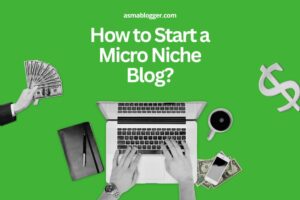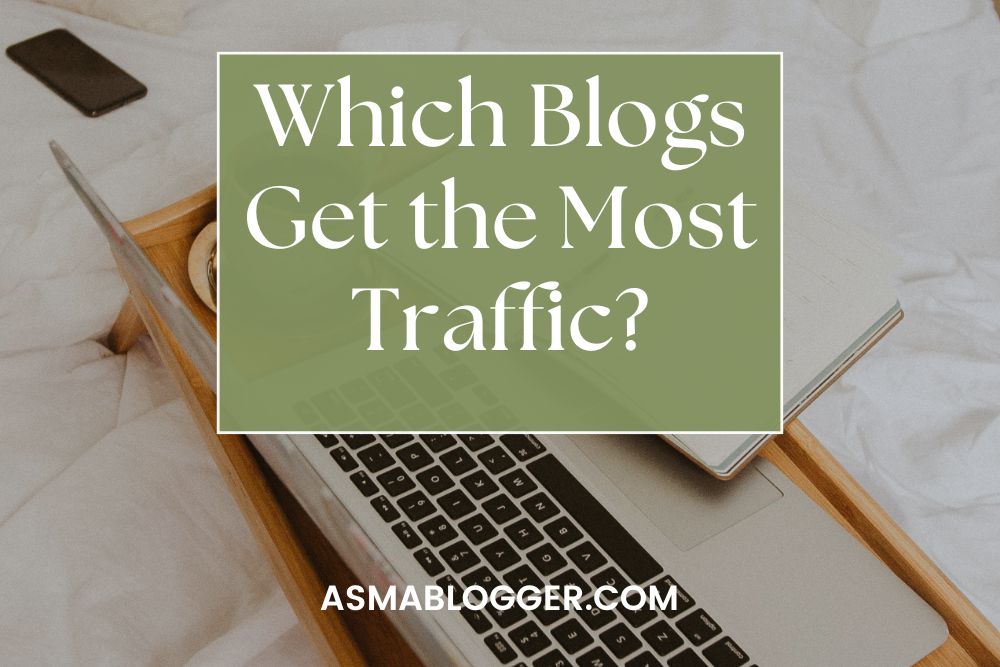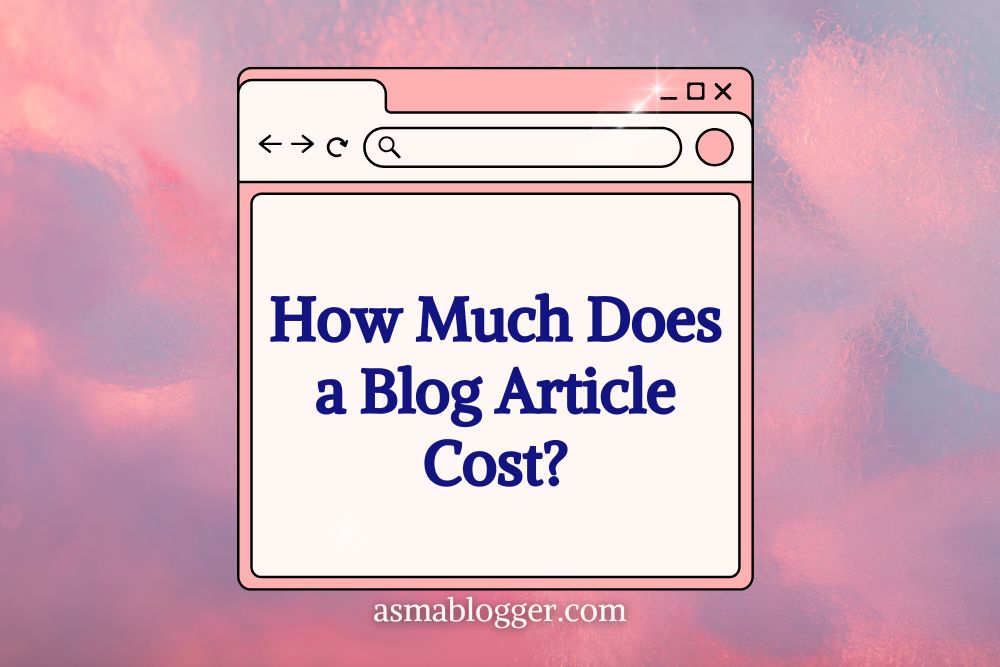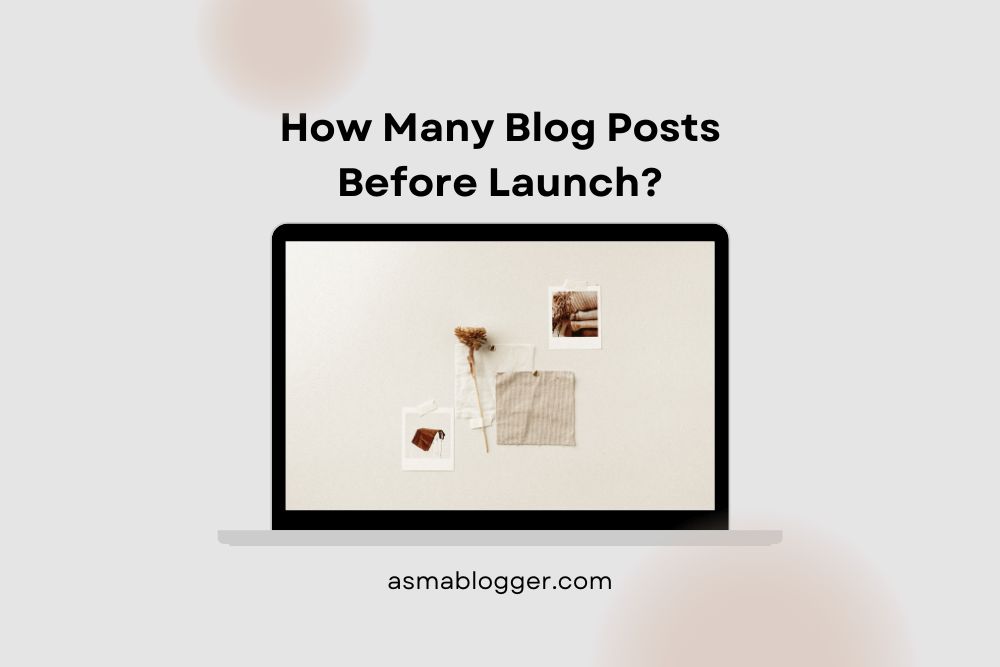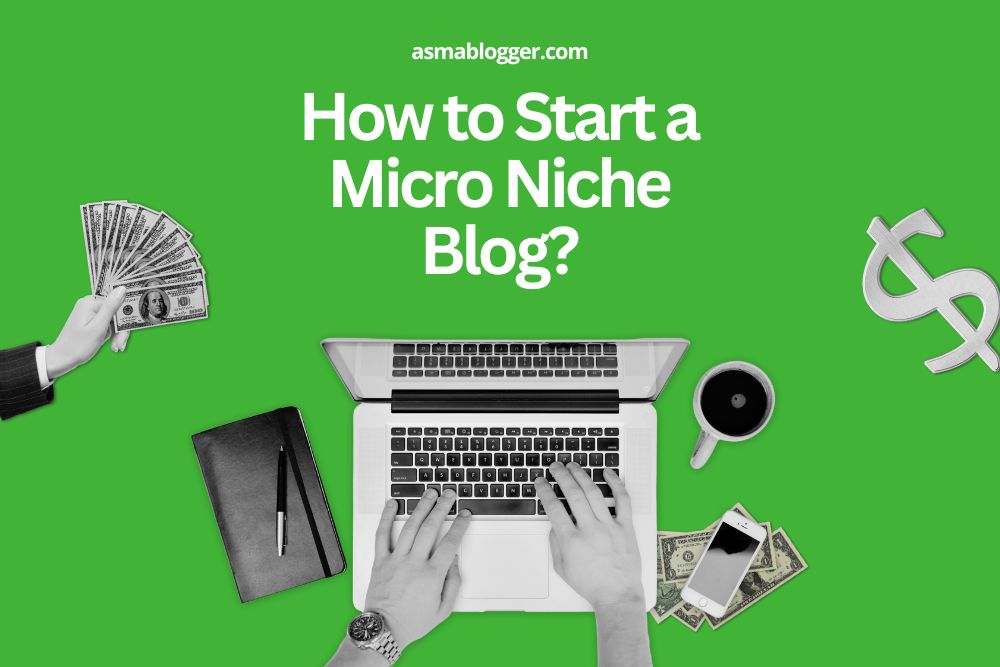Is it too late to start blogging? The short answer: absolutely not! Sure, the blogging world is crowded, but there’s always room for fresh voices, unique perspectives, and high-quality content. You might be surprised to learn that over 7.5 million blog posts are published daily on the blog! That’s a lot of content, but it doesn’t mean your voice can’t stand out. Starting a blog today isn’t just about competing; it’s about finding your unique angle and connecting with your audience.
Table of Contents
ToggleConsidering starting a blog? Let’s explore why now could be the perfect time to begin! Your blog has incredible potential, and I’m here to show you how to make it shine.
Why Blogging Still Matters in a Competitive Market?
With platforms like TikTok and Instagram booming, you might ask, “Is It Too Late to Start Blogging?”Absolutely not! Blogging remains crucial for building your brand and connecting with your audience. It is necessary to;
A. Build Authority Through Blogging
When I started blogging, I was overwhelmed by the competition. However, I soon realized that blogging is fantastic for building authority. It’s not just about posting content but showing your expertise and earning trust.
Keeping up with regular posts can be tough, and some days, it feels like no one’s listening. However, each well-written article is a step toward proving your expertise and growing your reputation.
Pro Tip: Focus on creating high-quality, detailed content. It’s better to post less often but with richer material. This way, you build authority and keep readers coming back.

B. SEO and Long-Term Visibility
Now, let’s talk about SEO. Blogging is great for improving your search engine visibility. Search engines love fresh, relevant content, so the more you blog, the higher you can rank in search results.
Evergreen content is especially valuable. These are posts that remain relevant over time and keep driving traffic to your site. This means you get long-term SEO benefits and consistent visibility.
Pro Tip: Use authentic tools like Google Keyword Planner and SEMrush to find and use the right keywords in your posts. This will boost your SEO and attract more readers, proving that it’s never too late to start blogging if you focus on the right strategies.
How Much Money Can You Make Blogging in 2024?
Thinking about blogging for cash? The income potential can be pretty impressive but varies a lot. Some bloggers make $30,000 a month, while others might earn more or less. Your earnings depend on your niche and how you monetize your blog.

A. Income Factors
- Niche: Tech and finance blogs often earn more than niche topics like vintage stamps.
- Monetization Methods: Here are some common ways to earn:
- Affiliate Marketing: Earn commissions by recommending products.
- Sponsored Posts: Get paid to write about services or products.
- Advertising: Use ad networks or sell ad space.
- Digital Products: Sell ebooks or courses.
- Memberships: Offer premium content for a fee.
B. Tips for Success
- Focus on Quality: Great content attracts and retains readers.
- Be Patient: Building income takes time.
- Experiment: Try different methods to see what works for you.
Key Challenges to Start a Blog Today
Starting a blog today is challenging with so many out there. It can feel tough to stand out but don’t let that stop you. Understanding these challenges will help you tackle them find your niche, and ensure that it’s never too late to start blogging.
A. Stand Out in a Crowded Blogging Space
Finding your unique voice is crucial. If you’re just another face in the crowd, it’s tough to grab attention. Consider the following strategies to differentiate yourself:
- Identify what sets you apart: Reflect on your personal experiences or unique insights that others might not have.
- Find a niche within a niche: Explore subtopics that are underrepresented in your field.
- Offer a fresh perspective: Approach popular subjects from an angle that’s uniquely yours.
B. Stay Consistent and Committed
Blogging isn’t a sprint; it’s a marathon. Long-term success requires dedication and regular content updates. To maintain momentum and keep your blog thriving, follow these tips:
- Create a content calendar: Plan your posts to stay organized and ensure regular updates.
- Automate and manage: Use tools to help schedule and manage your content efficiently.
- Maintain quality and consistency: Regularly update with high-quality posts to build and retain your audience.

How to Start a Blog Today: Actionable Steps
So, you’re ready to explore blogging, huh? It might seem overwhelming at first, but the key is to take it one step at a time. Here’s how to get started and stay on track without losing your mind.
A. Choose a Niche and Audience
Alright, let’s talk niches. When starting a blog, the first step is deciding what you’ll write about. You don’t want to be all over the place (trust me, it’s exhausting!). Pick something that excites you so it’s easy to stay consistent.
For example, if you’re into fitness, focus on something specific like “strength training for beginners” or “workouts for busy moms.” Broad topics? Old news. People want experts, so be that expert.
Here’s how to find your niche:
- Ask yourself what you’re passionate about.
- Use tools like Google Trends to check if there’s an audience.
- Find a unique angle to stand out.
B. Create an SEO Strategy for New Blogs
Ah, SEO—it’s that friend you can’t ignore. If you want people to find your blog, you need to pay attention to it. You don’t have to become an SEO expert, but having a basic strategy early on will save you a lot of trouble later.
Here’s what you can do right from the start:
- Pick the right keywords. Use tools like Ubersuggest or AnswerThePublic to find low-competition keywords. Trust me, you don’t want to compete for “best fitness tips”—you’ll get lost in a sea of blogs.
- Optimize your on-page SEO. Make sure your keywords are in your title and headers and sprinkled naturally throughout your post. But don’t overdo it—Google’s smarter than that now. Also, add internal links to other posts on your blog. It helps!
- Write for humans first, Google second. Keywords matter, but engaging, helpful content is what truly connects with readers. Focus on creating content people want, not just what pleases search engines. It’s a balancing act, but it becomes easier with practice.
You might be interested to know: Content-Centric SEO: A Comprehensive Guide
One tip more: don’t forget to optimize images! Add alt text with keywords and keep file sizes small for faster load times—Google loves speed. And make sure you have solid hosting. SEO is a slow process, but it’s worth it when it works!
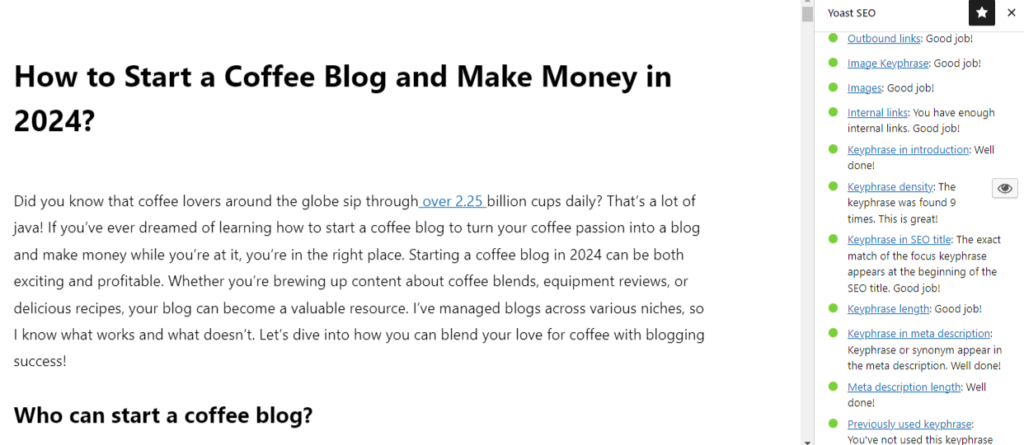
You might be interested in reading these guides of mine:
- How to Start a Coffee Blog and Make Money in 2024?
- How to Start a Knitting Blog and make money?
- How to start a gardening blog and make money?
- How to start a DIY blog and make money?
Incorporate Success Stories: Real Examples of Successful Blogs
Starting a blog later isn’t as wild as it seems. Many have successfully launched blogs after switching careers. If they can do it, so can you. Let’s look at some inspiring examples and see what lessons new bloggers can take from their success.
Success Stories and Learn Lessons
Do you know what boosts your blog? Incorporating success stories! It’s like sprinkling a bit of magic to show what’s possible. For example, Bobby Hoyt turned a $5K investment into a $1.8M/year blog—how crazy is that? He used his personal finance skills and killed it with Facebook ads. You need to do;
- Leverage what you know, Just like Bobby did. If you’re an expert in something, use it to your advantage.
- Be real with your audience: Pat Flynn from Smart Passive Income kept it authentic, sharing his highs and lows. That’s how he built trust, eventually making $1.5M a year!
- Find your lane: Each successful blogger sticks to their niche. It’s what helps them stand out and attract loyal readers.
It’s not just about posting—learning from others’ successes is crucial. Starting small is okay. For example, HelloFuture began with $1K and now earns $3.52M/year. Stay persistent, and you’ll achieve great things, too!
You might be interested to know: How to Build a Blog Following? Expert Tips
Debunk Common Blogging Myths
Let’s debunk some common blogging myths. Many enter blogging with outdated expectations, but understanding these misconceptions can prevent you from being held back.
Myth #1: You Can Be a One-Stop-Shop for Everything
It used to be that bloggers wanted to cover every single aspect of their niche. Nowadays, though, being too broad just doesn’t cut it. With the internet overflowing with content, you’re better off zeroing in on a specific topic you love.
For example, focus on “minimalist home décor” instead of the broad “home improvement.” Trust me, narrowing down your focus will make you stand out.

Myth #2: More Posts Equal More Traffic
It’s tempting to think that churning out tons of blog posts will drive more traffic. But honestly, that’s a myth. These days, quality beats quantity. Instead of flooding your blog with mediocre posts, aim for fewer, high-quality pieces that truly offer value. It’s about making each post count, not just filling up space.
Myth #3: Clickbait Headlines Still Work
Sure, clickbait was the thing a while back. But now, Google’s smart enough to know when people click, skim, and leave. If your post doesn’t deliver what the headline promises, it won’t perform well in the long run. So, skip the flashy, empty titles and focus on headlines that truly represent your content.
Myth #4: Personal Stories Is the Way to Go
Personal blogs used to be popular, but these days, people get their entertainment elsewhere—like social media or YouTube. If you’re starting a blog, think about what value you can offer your readers beyond just personal stories. Education, solutions to problems, and niche expertise are what resonate now.
Myth #5: Only Writing Will Get You Far
Text-only blogs are becoming a thing of the past. Nowadays, people expect variety. Think multimedia—videos, podcasts, infographics. Not only do these make your blog more engaging, but they also reach different types of learners. Plus, it’s a great way to stand out.
The key takeaway? Blogging is not what it used to be. Stay flexible, keep learning, and don’t let these old myths hold you back.
Understand the Legal and Ethical Aspects of Blogging
Understanding the legal and ethical side of blogging is crucial. Moreover,
- Copyright Matters: Always ensure you have the right to use images or graphics. Obtain them from licensed stock photo sites or get direct permission from the creator.
- Proper Attribution: Give credit where it’s due. If you’re quoting someone or using their content, make sure to attribute it correctly.
- Transparency with Sponsored Content: Let your readers know if you’re getting paid to promote a product or service. Transparency builds trust, and trust is gold in blogging.
- Privacy is Key: If you collect data from readers, like email addresses, ensure it’s kept secure and never share it without their consent.
A. Avoid Common Blogging Pitfalls
Avoiding legal and ethical pitfalls can be tricky. Here are a few tips to help:
- Always attribute quotes and content you didn’t create yourself.
- Cite important information.
- Be upfront about any financial ties to products or services you blog about.
- Before running giveaways or contests, check the rules to avoid legal issues.
Remember, blogging is about building trust and credibility. Stay on top of these details, and you’ll be set for a smoother journey!
Do You Need Professional Help to Start Your Blog in 2024?
Starting a blog can feel overwhelming – there’s so much to consider, from picking the right platform to designing a site that stands out. Sure, you can figure it out on your own, but it takes time, and mistakes can be costly. A professional can save you that headache by guiding you through each step, from choosing a niche to setting up SEO.
If you’re serious about getting your blog off the ground and growing fast, hiring help might be worth it. It’s about getting things right from the start and avoiding the pitfalls that slow down so many new bloggers.
I’ve worked with so many clients across various niches, from lifestyle bloggers to tech enthusiasts, and I’ve helped them overcome every hurdle imaginable. I’m here to help with anything from choosing your platform to planning your content strategy. And trust me, when you have a solid foundation, you’ll realize it’s definitely not too late to start blogging.
Is It Too Late to Start Blogging: Conclusion
Starting a blog in 2024 offers huge opportunities for personal and professional growth. It’s not just about standing out in a crowded field; it’s about leveraging your unique voice and expertise to connect meaningfully with your audience. Remember to stay consistent, prioritize quality content, and adhere to ethical practices like proper attribution and transparency.
Now’s your chance to explore and make your mark on “Is it too late to start blogging?”! Share your blogging journey, tips, or any questions you have in the comments below.
Is It Too Late to Start Blogging: FAQs
Is blogging still profitable in 2024?
Yes, blogging is still profitable in 2024. Many bloggers earn substantial income through various methods like affiliate marketing, sponsored posts, and digital products. With the right niche, strategy, and dedication, blogging can be a lucrative venture even amid evolving online trends.
Which blog is most profitable?
The most profitable blogs often focus on high-demand niches like personal finance, tech, and health. Examples include “The Penny Hoarder” and “Smart Passive Income,” which generate significant revenue through affiliate marketing, sponsored content, and premium memberships. Success typically hinges on strong content and a dedicated audience.
Do people read blogs in 2024?
Yes, people still read blogs in 2024. Despite the increasing popularity of video content on social media platforms, blogs remain a valuable resource for in-depth information and personal insights. Quality content and SEO optimization continue to attract readers who seek detailed and reliable information on various topics.







